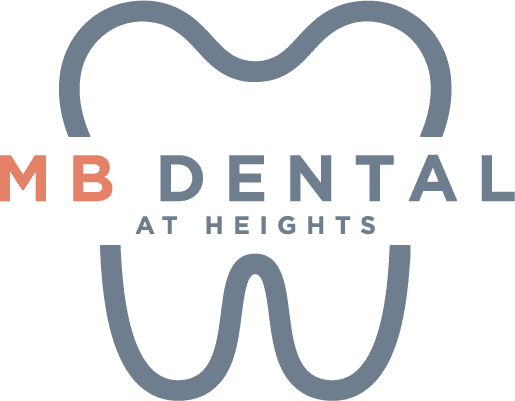At MB Dental at Heights, our dental care providers recognize the important connection between oral health and overall wellness, known as the oral-systemic link. That’s why we conduct blood pressure screenings at every dental visit to ensure the body is prepared for treatment. These screenings can reveal valuable insights into a patient’s health and may even determine whether a dental procedure can proceed.
During your initial consultation, we typically perform a blood pressure check, examine the mouth and body, review your medical history, and take X-rays. By monitoring blood pressure at every appointment, we can identify any lifestyle factors that might impact your well-being. We prioritize patient involvement, thoroughly explaining the results of your screening and how it may influence your dental care plan.
If you’re interested in learning more about blood pressure screenings and how they relate to your dental care, MB Dental at Heights in Heights, TX, is here to help.
Low Blood Pressure
Blood pressure measures the force of blood flowing through the arteries during heart contractions. According to the Mayo Clinic, low blood pressure (hypotension) occurs when the brain doesn’t receive enough blood. This can result from underlying health conditions, medications, pregnancy, infections, or nutritional deficiencies. Symptoms of low blood pressure include dizziness, fatigue, nausea, fainting, dehydration, blurred vision, pale skin, and mild depression.
In most cases, low blood pressure doesn’t affect dental treatments. However, if a patient’s reading is significantly low, we may suggest drinking water or a sugary beverage to raise blood pressure or rescheduling the appointment. Low blood pressure only poses a concern if the patient feels dizzy or fatigued, as the stress of anesthesia and dental procedures could lead to unpredictable results.

High Blood Pressure
High blood pressure (HBP), also known as hypertension, occurs when blood pushes against artery walls with excessive force. HBP puts extra strain on the heart and can damage artery tissues. According to the CDC, HBP raises the risk of heart disease and stroke, which are leading causes of death in the United States, affecting tens of millions of adults. Uncontrolled HBP can also lead to stroke, heart attack, heart failure, vision loss, kidney disease, and sexual dysfunction.
Since dental treatments can induce stress through local anesthesia and drilling, it’s crucial to monitor blood pressure during procedures. In patients with HBP, this stress could increase the risk of severe complications like heart attacks or strokes. However, treating oral conditions like cavities can actually help lower blood pressure and improve overall health.

Understanding Your Blood Pressure Results
A blood pressure reading consists of two numbers representing two different forces: systolic and diastolic pressure. The American Heart Association explains that systolic pressure measures the force as the heart pumps blood into the arteries, while diastolic pressure measures the pressure as the heart rests between beats. A normal reading is 120/80 mm Hg. Blood pressure is considered high if the systolic number exceeds 120 or if the diastolic number is above 80. Low blood pressure is defined as readings of 90/60 mm Hg or lower.
Our team carefully reviews each patient’s medical history, prior treatments, and current health conditions to tailor dental care plans based on their blood pressure. In certain cases, we may refer patients to their primary care provider to better manage their blood pressure or recommend further medical evaluation to ensure their safety during dental procedures.
When Treatment May Not Be Possible
In some instances, we may not be able to treat patients whose blood pressure exceeds 180/110 mm Hg to avoid potential health risks. Other situations may arise if a patient’s primary care doctor restricts certain dental procedures due to medication side effects or pre-existing conditions that impact blood pressure. For patients with manageable blood pressure, we will monitor vitals throughout treatment and pause care if necessary.
Anesthesia often contains epinephrine, which helps prolong its numbing effect by constricting blood vessels. This can raise blood pressure, so we may adjust the type or dose of anesthesia for patients with hypertension.
Referrals To Specialists
For patients with unusually high or low blood pressure, we may recommend seeing a cardiologist or another specialist. Historically, a lack of understanding about how dental treatments affected blood pressure led to complications. Today, referrals are a way to ensure patients receive the right care for both their dental and overall health.
When referring patients to specialists like cardiologists or mental health professionals, it ensures they get the expertise needed to manage conditions related to heart health or stress, which in turn can help stabilize blood pressure. These specialists often refer patients back to dental providers for further treatment once health conditions are properly managed.
